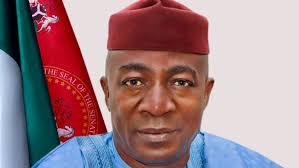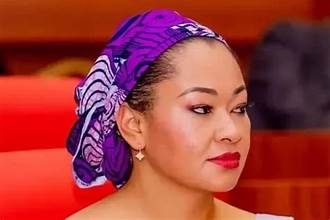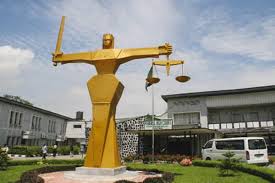The red chamber remains closed to Senator Natasha Akpoti-Uduaghan – at least for now. As Nigeria’s Senate takes its annual recess, its controversial decision to keep the Kogi Central lawmaker suspended continues to stir debate within and beyond the walls of the National Assembly.
Senate spokesman Yemi Adaramodu, speaking on Channels Television’s Politics Today on Tuesday, confirmed that Akpoti-Uduaghan’s suspension still stands and will remain in place until the Senate reconvenes in two months’ time.
But Tuesday wasn’t just any day.
Earlier that same day, the Peoples Democratic Party (PDP) senator arrived at the National Assembly, seemingly empowered by a recent ruling from Justice Binta Nyako of the Federal High Court in Abuja. The judgment, which reportedly questioned the legality of her suspension, appeared to offer her a glimmer of hope. Yet, when she attempted to resume her legislative duties, she was blocked from entering the chamber.
This latest twist marks a new chapter in what has become one of the most dramatic episodes of the 10th Senate.
A Brawl, An Accusation, A Suspension
Back in March 2025, Akpoti-Uduaghan was handed an indefinite suspension after a fiery altercation over seat arrangements escalated into a personal and political showdown with Senate President Godswill Akpabio. The incident, initially dismissed as parliamentary drama, took a darker turn when the senator accused Akpabio of sexual misconduct – a claim he flatly denied.
In response, the Senate leadership cited a breach of House rules and declared her conduct “unbecoming of a senator”, swiftly moving to suspend her. The decision drew both applause and criticism, reflecting Nigeria’s increasingly polarised political landscape.
Rule of Law vs Senate Rules?
Fast forward to July, and Akpoti-Uduaghan’s attempted comeback is raising questions about the power dynamics between the judiciary and the legislature. Can a court overrule a Senate suspension? While the court’s ruling seems to favour her position, the Senate insists it operates by its own standing orders.
Adaramodu maintained that the court’s decision did not compel the Senate to lift her suspension immediately. “She remains suspended until the chamber reconvenes and formally addresses the matter,” he said on the programme.
For Akpoti-Uduaghan, however, the battle appears far from over. Her supporters say she is being punished for daring to challenge the establishment. Critics argue she crossed a line by bringing personal allegations into the chamber without solid proof.
A Larger Political Undercurrent?
Beyond the headlines, the incident speaks to broader themes: gender dynamics in Nigerian politics, freedom of expression within the legislature, and the tension between party politics and parliamentary procedure.
Akpoti-Uduaghan, a lawyer, entrepreneur, and known firebrand, has never been one to shy away from confrontation. Her rise to the Senate was itself historic, marking a breakthrough for women in a region where female political leadership remains rare.
Now, her suspension – and her refusal to accept it quietly – has positioned her as both a lightning rod and a symbol of resistance.
With the Senate on recess until September, the political drama will likely simmer – but not disappear. Legal experts suggest the courts may again be called upon to clarify the boundaries between judicial rulings and parliamentary autonomy.
For now, Akpoti-Uduaghan waits. But if Tuesday’s events are anything to go by, she is not waiting quietly.
Whatever one’s view of the senator, one thing is clear: this is not just a story about a suspension. It’s a story about power, process, and the price of defiance in Nigerian politics.





